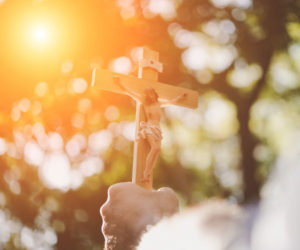Turkish Christians Denied New Religious Identities
- Bu konu 1 izleyen ve 0 yanıt içeriyor.
-
YazarYazılar
-
6 Aralık 2006: 22:13 #24036klausAnahtar yönetici
ISTANBUL, November 10 (Compass) — Two months after Deniz Kasan and Turgay Papakci said their wedding vows before 200 relatives and friends at the Istanbul Presbyterian Church this summer, the bride went to her local population bureau to update her registration data.Along with confirming her new marriage status and changing her surname, the bride had another application to submit: changing her religious identity from Muslim to Christian, just as her new husband had done two years earlier.
But to Kasan’s shock, her routine application was refused by the Kadikoy “kaymakam,” or presiding district official. In a notice issued that same day, September 29, the official declared that her church was “not recognized as an official house of worship” and thus her baptismal certificate could not be considered valid.
Begun nine years ago, the steadily growing Presbyterian Church congregation has met in the historic All Saints Anglican Church in Istanbul’s Moda district since late 1997. This year it started a new satellite church in Ankara as well.
When the mailed notice reached Kasan on October 7, her husband eyed it in amazement. Along with a number of other converts, he himself had changed his religious I.D. after being baptized in the same church, where he now serves on the pastoral staff.
“After I got the wording right, my application was accepted the same day I submitted it,” Papakci told Compass. “So I cannot understand why now they are refusing this right to my wife.”
But another new Christian in their church, 21-year-old Beyza Gun, received an identical refusal the same week.
“It is ridiculous to send our church members such a notice,” declared their pastor, Rev. Turgay Ucal. “Any Turkish citizen over the age of 18 has the legal right to change his religious affiliation by signing a simple statement to that effect.”
Accordingly, Ucal’s congregation has hired a local lawyer to contest the rejection of both applications. After filing a case before Istanbul’s administrative courts on October 30 against the Kadikoy “kaymakam” and population bureau, lawyer Erol Dogru told Compass he expected the case could take some months to resolve.
Meanwhile, in Istanbul’s Altintepe district where the Istanbul Protestant Church’s 70-plus congregation meets, two other Turkish Christians reported similar difficulties.
Significantly, in July 2000 this church became the first new Protestant congregation to be granted official “foundation” status in the history of modern Turkey.
For Timur Topuz, 29, this was the second time the bureaucracy had blocked his formal application for Christian identity. Now employed in the textile industry, Topuz first applied for a new identity in 1998, four years after he came to faith in Christ.
After months of waiting, he was told that his applications to the population bureau in Konya where he was registered with his family, as well as to the Kadikoy district of Istanbul where he now lives, were both “missing.” Local officials claimed they had no record that Topuz had ever even applied for such a change.
So three months ago, Topuz decided to try again. When he went on September 17 to pick up his newly issued I.D. card, he was given a written notice declaring that his identity could not be revised as requested. Citing an Interior Ministry directive dated October 14, 2002, the office ignored his objections and issued him a new card identifying him as a Muslim.
When asked if he planned to open a court case over his denied request, Topuz confirmed that his church was considering it. “But it seems it could be very expensive,” he noted.
Another Altintepe church member, Emrah Unver, was verbally rebuffed two months ago when he went to the same Kadikoy bureau. A carpenter and furniture maker, Unver told Compass he had become a Christian two years ago. When 27-year-old Unver told the officials he wanted to change his identity from Muslim to Christian, they told him it was not allowed and refused to accept his application.
More than a decade has passed since the Turkish state liberalized its administrative laws, making it a routine matter for Muslim citizens who convert to Christianity to change their official religious identity. So recent attempts to refuse such applications have taken the country’s 70 or more Protestant church fellowships by surprise.
“It appears that whoever is applying these last few months is facing difficulties,” one Turkish Protestant leader told Compass.
But on the success side, one woman convert in Ankara’s expanding Salvation Church stood her ground for six months after local administrative officials refused her application this past April. A Christian since 1996, she finally won her petition last month without opening a full-blown court case. As an economist and state employee, the woman was subjected to repeated pressures and delays by both police and government officials.
“My petition was under investigation by the security police alone for two months,” she told Compass, “and I was called in many times to the police station or other offices. At first I was a bit afraid, but I learned we just have to stand up against all these pressures, and in the end, the officials have to allow us to change.”
According to lawyer Dogru, the core problem is that Turkish law contains no statutes regarding the formation or legal status of non-Muslim religious groups, apart from the traditional ethnic institutions of its Armenian, Greek and Jewish citizens.
“Turkish law does not adequately define this,” Dogru said. “But in a secular country, the constitution and laws must approach all religious groups equally. Here the police are saying this church is not a sufficiently official church. But who is going to clarify this? Right now there is no ‘official’ definition.”
Since other members of the Istanbul Presbyterian Church had previously changed their religious I.D. without incident, he said, the recent refusals appeared to be based on a “political attitude,” possibly reacting to allegations against Christians doing “missionary work” in Turkey. “But from a legal standpoint, this refusal absolutely cannot be accepted,” he concluded.
Several hundred Turks who have become Christians are believed to have changed their official identities under the country’s secular laws over the past 15 years, although no confirmed statistics are available. “Without question,” Dogru commented, “Turkey’s laws and constitution guarantee freedom of religion. But in order to win this, our citizens have to fight for it in the courts of law.”
-
YazarYazılar
- Bu konuyu yanıtlamak için giriş yapmış olmalısınız.

















